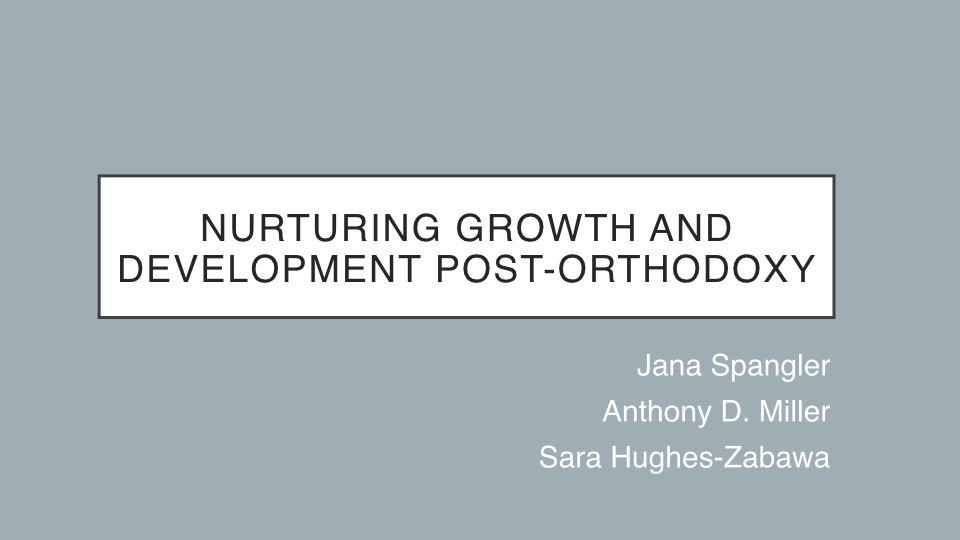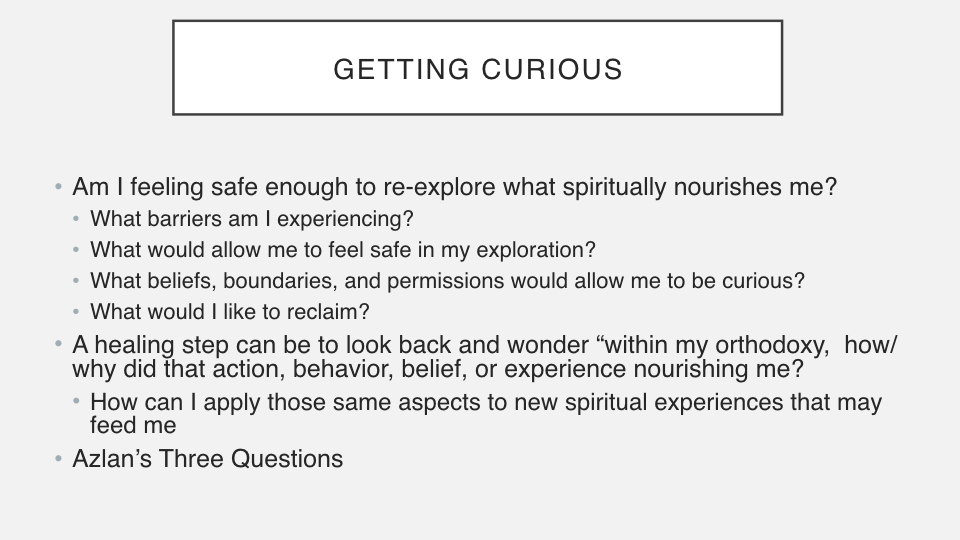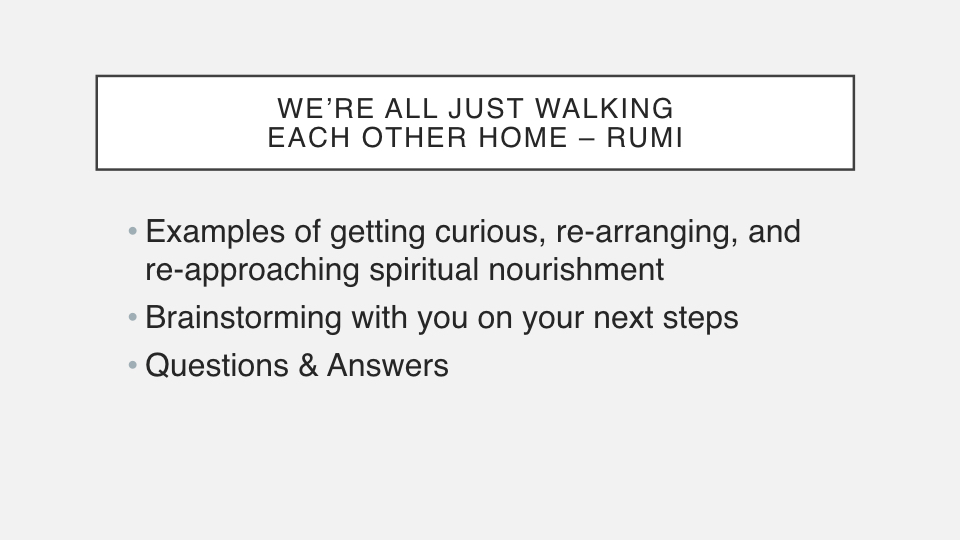On Friday, August 2, 2019, I shared the inspiring opportunity to co-present with my friends, Jana Spangler, a certified Integral Professional Coach, and with Sara Hughes-Zabawa, a licensed clinical social worker and professional therapist. Both affiliated with Symmetry Solutions, LLC.
https://www.symmetrysols.com/jana-spangler
https://www.symmetrysols.com/sara-hughes-zabawa
If you are interested in listening to the full audio of our session, you can listen to it here:
I’d like to share several of the slides from our presentation along with some personal observations.

Session overview:
As more Mormons experience faith transitions and faith awakenings, many find themselves looking for continued growth and expansion without knowing how to pursue that in emotionally safe and intellectually stimulating ways. This session aims to explore approaches to individual and/or spiritual growth outside of an orthodox framework. We invite others to be empowered in their personal development by discussing our personal and professional experiences in owning and expanding individual development post-orthodoxy. We will also explore how nurturing our own individual growth and progression can foster a greater ability to sit with others in their differences.
Observations:
I have experienced an increasing desire to nourish and develop spirituality outside traditional orthodox practices in the Latter-day Saint Church.
In this session, as a former member of the Church, I was joined by two active Church members, Jana and Sara, who also experience desires to nourish and develop spirituality in many post-orthodox ways.
Together, we hoped to bring a discussion of curiosity and discovery to these topics.

While not a comprehensive list, this slide shows many of the prescribed practices and strategies through which we might have experienced a sense of connection and spirituality within orthodox beliefs.
For many of us, these practices integrated so deeply into our past experiences such that they became part of our very sense of identity, relationships, community, meaning, and purpose.
For those who experience a faith transition at some point in their lives, the meanings we attribute to many of these symbols and practices change on us.
The meanings we attributed to some of these things may become—for a time—a source of trauma, pain, or sense of betrayal.
This loss often leads to Grief.
On the other side of Grief, we may find ourselves seeking strategies to reconstruct a new sense of spirituality and meaning in life. However, on this other side of orthodoxy, the past prescribed lists may not work as well for us.

Interestingly though, many of the practices and symbols that once offered meaning can now be re-purposed, re-interpreted, and the source of new nourishment and meaning in our lives.
If you compare this slide to the previous slide of oft-prescribed orthodox practices, you’ll find many of the same practices, may simply be reconstructed to attribute different meaning and nourishment.
Sometimes, we may even find ourselves carrying over past practices and past attributions of meaning.
We have disparate and differentiated experiences, and this offers us opportunities for curiosity of what might feed us at this present moment.
Author, Father Richard Rohr suggests that if we are growing, we should expect that the meanings and experiences attributed to our spiritual practices will change over time—as evidence of growth.

How can we get creative about the meanings we might now attribute to symbols, rituals, and practices going forward?
We can call it whatever we want to call it. So, if we don’t want to use the words like God, spiritual, or divine, we can call it Elevation emotion—whatever is helpful for us in the present.
Aslan’s Three Questions relate to the extent that we find it helpful to sense a higher power, to have a relationship with that power, and the practices by which we connect to that power.

An example of how we experience things with Prerational thought, Rational though, or Transrational thought could be our experience with a rainbow.
With Prerational thought, we might see a rainbow, experience a sense of connection to God that relates to the rainbow, and come up with a myth that the rainbow is a sign from God of favor for us.
Hopefully, we progress and learn, and with Rational thought, we discover that a rainbow results from light refracting through water.
Beyond Rational thought lies, Transrational thought. With Transrational thought, when we see light refracting though moisture in the air in the form of a rainbow, and knowing that is what it actually is, we can still sit in the present moment of the experience, and view the beauty of the rainbow, and still find a sense of connection to something larger than us.

Another model of how we process information looks at how we evaluate information Subjectively (Interior) vs. Objectively (Exterior), and Individually vs. Collectively.
Often, when we process a faith transition, some of the dissonance we experience occurs because we confused our private, subjective, individual experiences as representative of objective truths that apply to the collective.
This model can help us increase our comfort levels with differentiation of experiences and looking at subjective vs. objective truths.

Link to values exercise discussed in the audio: Spiritual-Values-Exercise

